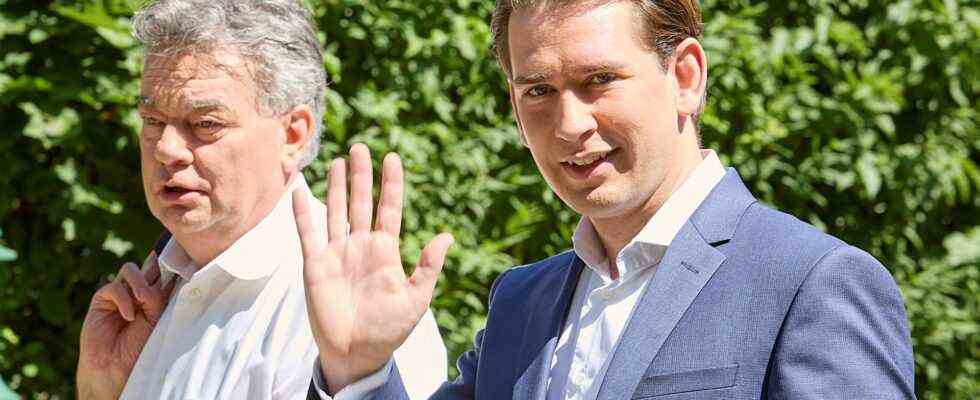Status: 08/26/2021 6:40 a.m.
Chancellor Kurz has made a commitment: Austria will not accept any refugees from Afghanistan. For the green coalition partner, the question arises as to what else they want to accept for co-government.
The message from Federal Chancellor Sebastian Kurz was clear: “I am not of the opinion that we should take in more people in Austria. On the contrary.” In his opinion, the country has already made a disproportionately large contribution. “And I am clearly against the fact that we now voluntarily accept more people – that will not happen under my chancellorship.”
One of the largest Afghan communities already lives in Austria. Kurz thus recorded where his right-wing conservative ÖVP stands when it comes to migration and asylum.
The green top keeps still
On the other hand, silence with the coalition partner. The Green Party leader and Vice Chancellor Werner Kogler held back in the ORF summer talk on the question of accepting refugees. “I cannot promise you what will come because we know that we do not rule alone.”
Green state politicians criticize the Federal Chancellor’s attitude much more aggressively: Briefly send dubious and completely inhumane messages, according to Johannes Rauch, Regional Councilor in Vorarlberg, on ORF. “The way in which this is happening now with regard to Afghanistan, that has to be rejected from the other side. And I also said that it was a shame.”
The fact that the Green party leadership is giving in has to do with its own political projects, says election researcher Sylvia Kritzinger from the University of Vienna. “I believe that this is about achieving the goals in climate and environmental policy.” The big question is how long this can be held out – especially if there are several such crises in which it becomes clear “that you support the policy of a coalition that is pretty much contrary to what you have represented so far – just about the climate – and promoting environmental protection as such, “said Kritzinger.
Enforce environmental protection – at what price?
Important political projects of the Greens include a climate protection law, which is supposed to reduce emissions, a CO2 tax and a cheap climate ticket for switching from car to rail. The climate ticket comes in October, but after one and a half years in government, the Greens have not yet set a major milestone.
On the one hand, this is due to the lack of commitment to climate protection on the part of the ÖVP – but the corona crisis has also overshadowed green politics, says Sylvia Kritzinger. “If there are no long-term successes, or if these are blocked by the coalition partner, then there may well be a small eruption – and a greater potential for conflict. But we are not there yet.”
The Green Vice Chancellor Kogler described the cooperation with the ÖVP very simply: In the end, the result has to be right. But it remains unclear at what price.
How much is the dispute over Afghan refugees burdening the coalition?
Theresa Krinninger, ARD Vienna, August 25, 2021 5:57 p.m.

